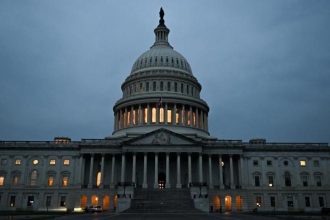Amid rising insecurity in Benue State, Professor Leonard Karshima Shilgba, a founding member of the All Progressives Congress and former Chairman of the Governing Board of NABTEB, has openly opposed growing calls for a state of emergency.
In a letter addressed to President Bola Ahmed Tinubu, Prof. Shilgba argued instead for deep-rooted constitutional reforms, including the establishment of state police and formal recognition of local security groups.
In a document titled “A Constitutional and Moral Rebuttal to the Call for Emergency Rule in Benue State,” Prof. Shilgba dissected the legal, historical, and political dimensions of emergency rule declarations in Nigeria.
He cited Section 305 of the 1999 Constitution (as amended), asserting that while the security situation in Benue is grave, it does not satisfy the constitutional criteria for emergency powers.
“The state government remains operational, and there is no indication of a total breakdown of law and order or governance machinery that would necessitate emergency rule,” he wrote.
Drawing a contrast with past instances like Plateau State in 2004 and Ekiti State in 2006—where emergency rule followed complete governance collapse—Prof. Shilgba maintained that Benue’s constitutional order remains intact.
He warned that invoking emergency rule in the current context would be disproportionate and potentially harmful.
Expressing concern over what he termed the “politicization of insecurity,” Prof. Shilgba warned that selective application of emergency powers could erode public trust in the federal government.
“Similar or worse security situations exist in states like Zamfara, Katsina, Kaduna, Borno, and Nasarawa, yet there have been no calls for emergency rule in those states,” he observed, suggesting that the current push for emergency intervention in Benue might be politically motivated.
He further criticized certain Benue elites for “weaponizing bloodshed for political gain,” pointing out that some proponents of emergency powers were silent or complicit during previous administrations when the violence was equally severe or worse.
Highlighting steps taken by Governor Hyacinth Alia since May 2023, Prof. Shilgba detailed multiple initiatives aimed at addressing the security crisis in the state:
Benue State Civil Protection Guards (BSCPG): A 5,000-member force equipped with 100 vehicles and 600 motorcycles to support federal security agencies.
Operation ‘Anyam Nyor’: A joint task force targeting banditry, kidnapping, and communal conflict.
Digital Surveillance Systems: Installed in sensitive areas such as schools, markets, farms, and border communities.
IDP Action Plan: A five-year strategy to assist over 500,000 internally displaced persons through agricultural training and resettlement.
Anti-Grazing Enforcement: Renewed enforcement of the 2017 legislation prohibiting open grazing.
Peacebuilding Efforts: Continuous engagement with traditional and religious leaders to foster reconciliation in volatile areas.
Military Assistance Requests: An appeal to the federal government to deploy military bases in high-risk local governments including Guma, Logo, Ukum, and Kwande.
Describing these efforts as evidence of proactive governance, Prof. Shilgba urged the federal government to support, rather than undermine, the state’s initiatives.
He called on President Tinubu to spearhead constitutional changes that would empower state governments to manage internal security. Among his recommendations were the legalization of state policing, the establishment of State Security Trust Funds, and amendments to Sections 214–216 of the Constitution. He also emphasized the need to clearly define the governor’s role as “Chief Security Officer” of the state.
“The disjuncture between responsibility and authority in Nigeria’s security architecture is a constitutional defect. Benue’s tragic security history is a consequence of this defect,” he argued.
In addition, Prof. Shilgba advocated for official recognition of local security outfits like the Civilian Joint Task Force (CJTF), Amotekun (Southwest), and Ebubeagu (Southeast), suggesting they be integrated into national security efforts.
He underscored the importance of addressing root causes of violence, such as land disputes, ethnic divisions, and economic marginalization, through deeper federal engagement with local communities.
Quoting a metaphor used by President Tinubu in a recent economic policy address—“You cannot rush coffee to be brewed”—Prof. Shilgba called for thoughtful, long-term solutions to Nigeria’s security challenges.
“I know you are a practical leader, who is not interested in cosmetic approaches. Emergency rule is a temporary fix, not a permanent cure,” he told the President.











